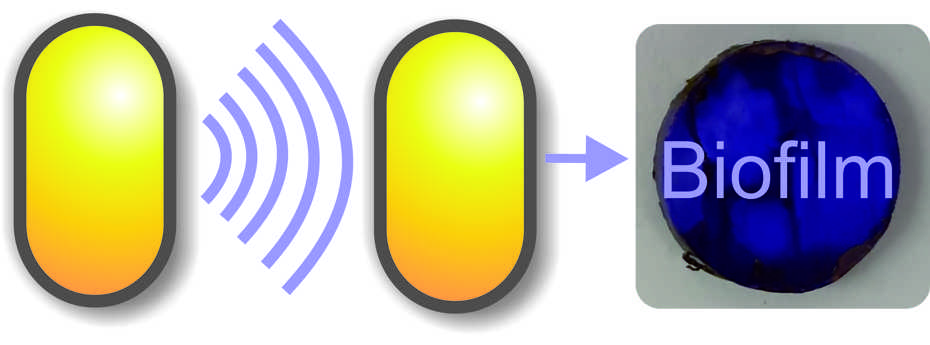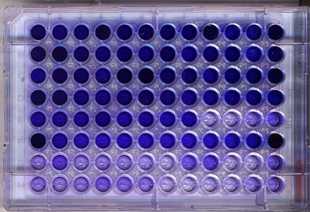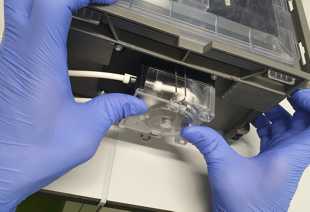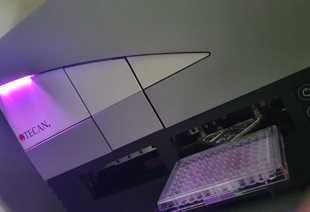
Bacterial biofilms cause huge problems in both healthcare and industry, thereby producing an enormous economic loss worldwide. The prerequisite for biofilm formation is bacterial chemical communication, generally known as quorum sensing (QS). Under high cell density, bacteria start to organize in a biofilm by producing extracellular polymers to attach and grow on solid surfaces making them highly resistant against chemical or mechanical treatment. Biofilms appear after a several time on nearly every wet surface, e.g. on freshwater supply, on marine surfaces like on ship bodies, in pipelines, or on medical relevant surfaces like implants.
Blocking bacterial QS is commonly referred to as quorum quenching (QQ). We at the IBWF are searching for QQ-compounds that block bacterial biofilm formation by interfering with QS of different various species that are present in different biofilm habitats (drinking water, marine, medical relevant surfaces). Since for activity of QQ-compounds there is no need to actively kill the cells, we focus on non-biocidal compounds for future applicability. Functionalized QQ-surfaces can be tested on covered biofilm in our own developed Panta Rhei microfluidics system allowing the macroscopic as well as microscopic evaluation and quantification of the bacterial biofilm.
The use of non-toxic QQ-compounds for biofilm prevention on different surfaces would be a great progress in medicine as well as a bioeconomic future.



